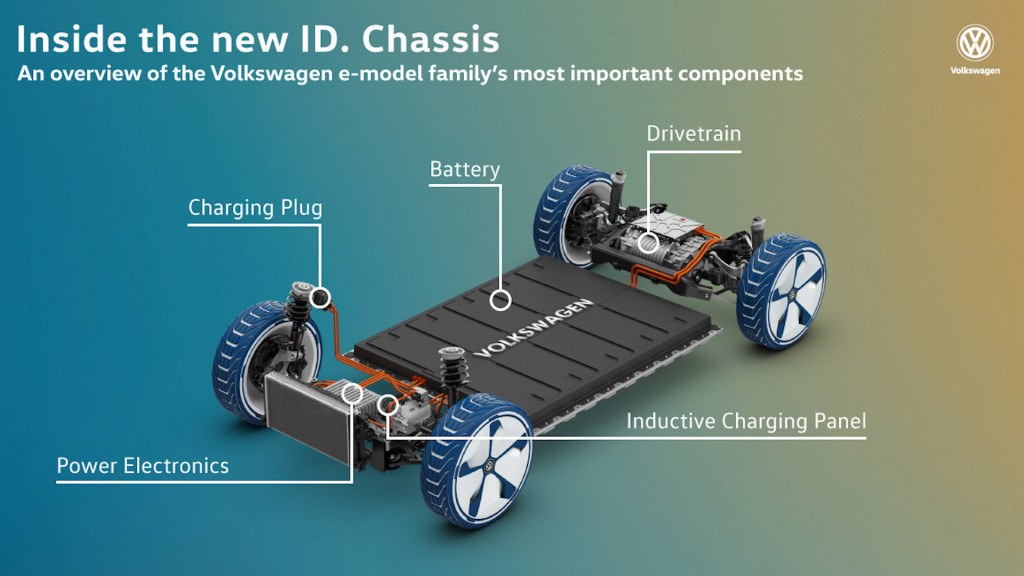Volkswagen electric cars based on the automaker's MEB platform may get bidirectional charging starting in 2022, according to a report from German business publication Handelsblatt.
Several automakers have discussed bidirectional charging—which allows cars to discharge power from their battery packs—for several years, usually in the context of vehicle-to-grid (V2G) systems that integrate EVs with the power grid, or as backup power sources for homes during power outages. However, commercialization of the technology has been slow.
However the pace could soon accelerate. As revealed Monday in the interview with Thomas Ulbrich, the member of the Volkswagen Group board of management for e-mobility, Volkswagen sees bidirectional charging as a business opportunity—one that effectively aggregates the power available at any given time from EVs and functions as a broker of energy, or a utility on its own.

VW MEB platform
VW has been testing hardware, which might be offered in the near future as part of a line of home-energy systems. In late 2020, it showed off a wallbox unit that could charge electric cars at up to 22 kilowatts, but also draw power from EV battery packs, allowing cars to serve as energy-storage units for homes, or as battery buffers for the grid, VW said at the time.
In some markets, the new business models afforded by V2X technologies might put VW in competition with energy companies, but the tech serves to potentially add more value to its cars over the long run.

Volkswagen bi-directional charging pilot program
The automaker's Audi division has also been researching the technology—with aims to see how the tech could help stabilize the grid. Fleets of EVs have long been discussed as a way to smooth out electricity demand by absorbing excess power during periods of low demand, and discharging it during periods of high demand.
The Nissan Leaf has had this capability nearly from the start, but there's been a lack of hardware capable of using it in the United States. The Wallbox Quasar revealed last year aimed to address that as an aftermarket product.
Hyundai, meanwhile, has made it a core tech included with its E-GMP platform that underpins the Ioniq 5 and Kia EV6, both arriving within the next year.












